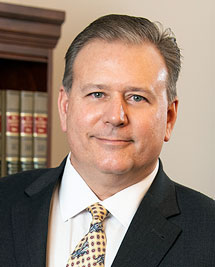The American healthcare system is a behemoth, a true understanding of which is nearly impossible.
Fragmented and constantly evolving, it has proven difficult to expand access to healthcare while containing costs and maintaining high levels of quality. Medical professionals are key components central to the system, and many hospitals now employ physicians in an effort to reduce waste and reward value over volume.
According to a recent survey by the American Hospital Association, hospital employment of physicians increased by 32 percent between 2000 and 2010. A 2012 survey conducted by the American Medical Association found that nearly 58 percent of family physicians and 50 percent of internists identified themselves as employees. Some healthcare industry leaders are hoping that having more physicians employed by hospital systems will increase efficiency and help lower costs due to streamlined patient care coordination and be able to avoid unnecessary procedures. Hospitals certainly make the deals attractive – fewer administrative responsibilities, guaranteed paychecks and generally more income than that earned by physicians who run their own practices.
With the number of physician recruitment arrangements involving hospitals, physicians, and physician group practices on the rise, it’s important for physicians to educate and protect themselves. When deciding on a job, you may be offered a straightforward employee agreement with a compensation and benefits package. Alternatively, you may be presented with an “income guarantee” or a “collectable revenue guarantee,” which is intended to assist physicians in relocating their practice to a community (often a rural one) to start a new practice or to join an existing practice. This agreement typically offers physicians assistance for a year or two in exchange for their staying in the community for two to three years for each year of support. During that time, the money provided by the hospital is forgiven, or repaid (known as the “forgiveness period”).
The idea behind a collectable revenue guarantee agreement is that a doctor receives a salary without having to deal with overhead expenses in exchange for professional medical services until he or she can be self-sufficient from the revenue from his or her own patients. A physician receives a monthly payment from the hospital that equals the difference between the monthly guaranteed amount and the actual income that the physician collects each month. As the revenue received by a physician increases, the payments from the hospital decrease. When the physician’s revenue is equal to or greater than the guaranteed amount, then the monthly payment from the hospital is zero.
It is important for physicians to understand that a breach of the contract will result in liability to the hospital for repayment of most or all of the loan from the hospital. The risk to the physician is that, once the income guarantee ends, the physician must have sufficient revenue to remain in active practice of medicine in the community where they were recruited. There are plenty of instances where the volume of patients from the rural community is insufficient to support the new physician’s medical practice.
While a handful of states have been reluctant to change laws aimed at preventing corporate interference with the practice of medicine, Kentucky allows for direct hospital employment of physicians. The majority of states reason that this practice is necessary to recruit doctors to underserved areas. Allowing these types of employment relationships addresses rural shortages, eases strains on access to care and relieves doctors of some financial and administrative burdens. Physicians who are hospital employees must be careful to remain steadfast in their professional responsibility toward patients and not allow employer goals or incentive payments to influence their decisions.
Any physician who is considering entering into a collectable revenue guarantee agreement with repayment forgiveness should exercise caution and secure legal help. Having an attorney go over the contract’s terms can save you time, money and frustration later on. You can be sure that the hospital had an attorney review the agreement to protect their interests – and you should protect yours. An attorney can also explain the tax consequences of meeting your obligations. When the loan is forgiven and cancelled, you have to pay income tax on the amount of the debt forgiveness. Moreover, the contract’s terms as to annual versus monthly forgiveness can make a big financial difference if you leave early.
As more doctors seek the security and resources provided by medical conglomerates, empty medical offices and citizens who find it difficult to get the care they need are left behind. The closing of independent practices hurts rural communities outside the reach of large hospitals particularly hard, but incentives to stay present their own challenges. At Bunch & Brock, we understand it can be hard to ask for advice and even harder to listen to it, but with more than 35 years of experience in the state of Kentucky, we have helped many physicians develop the best plan for their situation. To get started or if you have any questions about this topic, call us at 859-254-5522 or fill out this online form.

Attorney Matthew Bunch
Matt handles complicated bankruptcies and debt restructuring in Chapters 11 and 13 for both individuals and companies. He has also negotiated with multiple creditors on behalf of his clients to avoid bankruptcy. Matt is the firm’s lead litigator and handles contract disputes, certain personal injury claims and general litigation. [ attorney bio ]














